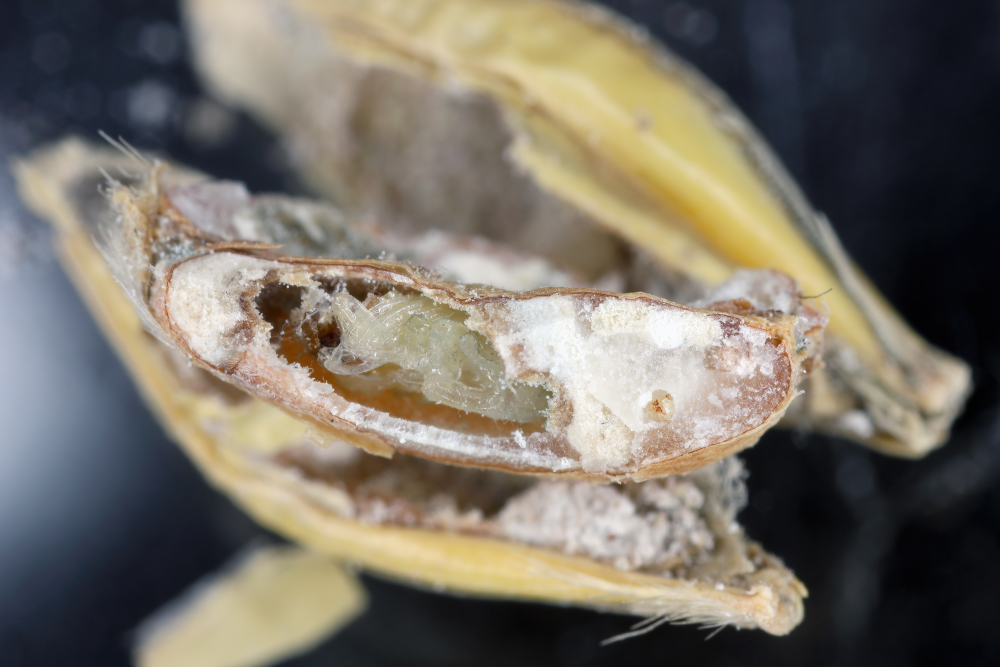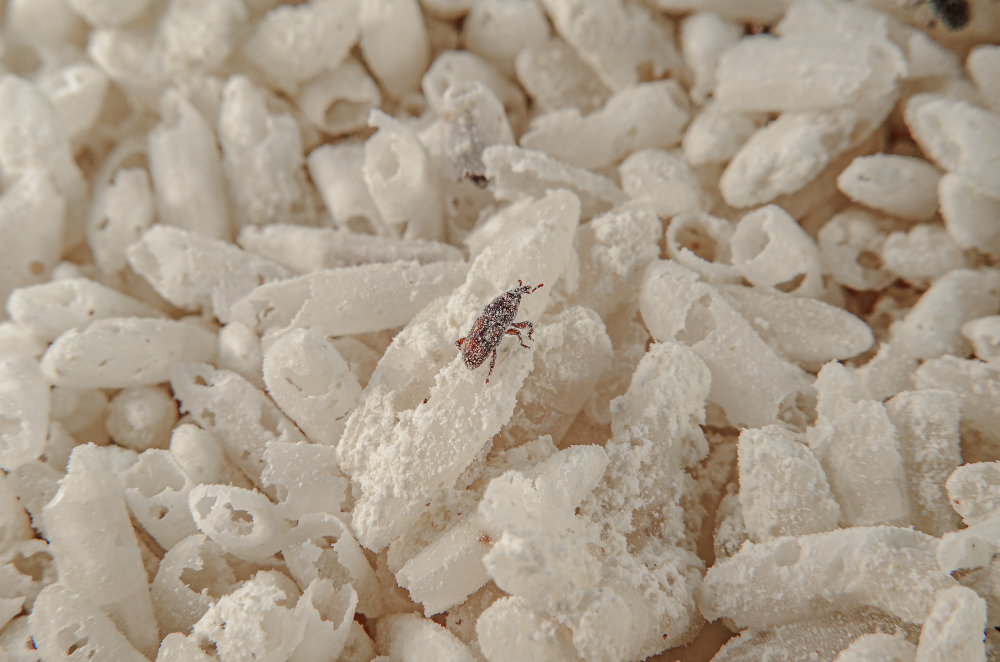There could be a pantry invader hiding in your rice and you wouldn’t know it. The crafty rice weevil can get into bags of rice in its larval form, tucked safely inside a grain as it develops.
ADVERTISEMENT
Rice weevils aren’t especially uncommon, and even if you did eat them nothing bad would happen. They are, however, one of a few reasons you might consider washing your grains in future.
What are rice weevils?
Rice weevils are a natural part of the environment, and just like us, they love snacking. They do indeed, as their name suggests, love rice, but they are also known to feast on crops of things like corn and other grains.
Like many weevils they have a delightfully noodly snoot that they use to gnaw into the hard casing of rice grains. Not only do they feed on the good stuff inside, but females will also lay their eggs inside rice grains. This is how a rice weevil’s journey to your pantry begins.

What in the prison break do these rice weevil larva think they’re playing at.
Image credit: Tomasz Klejdysz / Shutterstock.com
How do weevils get into rice?
Industrial rice production involves a certain amount of fumigating to try and keep the stock clear of pests, but it’s rarely 100 percent effective. The adult weevils are tiny, but the larvae are even harder to catch because they travel as stowaways tucked safely inside the rice grain. According to Deep Look, scientists have even tried using sound to track down infestations in rice stores by listening out for their chewing.
They feed on the inside of the rice grain until it’s just an empty shell and then crawl out as adult weevils. Once out, they can start the process of laying their own eggs and this is how even just a couple of weevils can result in an infestation if rice isn’t stored properly and goes uneaten for several months.
Preventing rice weevils
Rice weevils are more common the closer you are to the source, as a study found that raw milled rice contained the highest number of weevils. This number dropped off in more treated rice samples, such as that being imported and parboiled rice.
The pre-storage treatment of rice contributes to the likelihood of a rice weevil infestation as well as the actual rice grains themselves, and the researchers suggest that heat sterilization can be effective in minimizing rice weevils. That said, that some weevils make it past fumigation and importation to the bags in some people’s pantries isn’t the end of the world, because eating a couple of weevils won’t hurt you.

Rice weevils won’t hurt you, but if you leave your rice sitting around for months, they could destroy it.
Image credit: Aurius / Shutterstock.com
Are rice weevils harmful?
Rice weevils aren’t always going to be in rice, and even if they were, eating a few won’t harm you. If anything, it’s just going to boost the protein content of your grains a bit, but you can sweep away rice weevils by washing your rice.
Where rice weevils can be harmful is in their hunger for dried goods, and if left to their own devices they’ll reduce your grains to a heap of creepy dust. This is why managing rice weevils is a bit matter of concern for large-scale producers who don’t want to lose their stock, but you the consumer with your modest bag of rice at home don’t need to worry. If you’d like to be extra careful, you can make sure to store your rice properly in an air-tight container somewhere cool and dry.
ADVERTISEMENT
You might not want to be accidentally eating insects, but there is something to be said for making these terrestrial arthropods part of the menu. Eating insects has been touted by some as a protein source of the future, so if you’re wondering if you really need to bother washing your rice, here’s the science behind it.
Source Link: Don’t Wash Your Rice? Hope You Like The Taste Of Rice Weevils